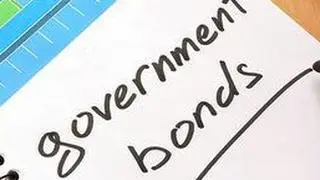India has sought permission to participate in the proceedings of the first of its kind dispute at the World Trade Organisation targeting the market price support programme for agriculture produce of a member country.
The WTO, recently, agreed to the US’ request for a dispute panel against China’s price support programme for wheat, rice and cotton which has put India on a state of alert.
“New Delhi is keen to follow the negotiations as the future of its own minimum support prices (MSP) programs could be at stake in the future. There is a peace clause giving us some protection against dispute, but it has its limitations,” a government official told BusinessLine .
The establishment of the WTO panel against China underlines why India has been so insistent that a permanent solution to its food security concerns should be reached at the earliest. “We don’t want to reach a situation where our food support programmes are challenged,” the official added.
India, and other developing countries with poor population to support, have been lobbying hard to ensure that the Agreement on Agriculture (AoA) of the WTO is suitably amended to remove limits on public stock holding and food aid.
The AoA allows so called ‘market distorting subsidies’ up to a limit of 10 per cent of total production. With the rise in food prices and the number of poor to be supported in developing countries over the last two decades since the AoA was framed, these subsidies have gone up substantially.
Once India fully implements its food security programme, there is a possibility that its procurement subsidies would breach the 10 per cent cap.
The US, in its complaint, said it was concerned that China’s market price support for wheat, rice and corn each exceeds the permissible level of domestic support China agreed to upon accession to the WTO.
China’s viewChina said it was disappointed by the US’ unprecedented action in challenging China’s legitimate and WTO-consistent domestic support for vital food staples. Members had a right under the WTO to provide necessary and essential support to their agricultural producers, China added.
“While India has managed to get developed countries to agree to a ‘peace clause’ that will prevent members from challenging the country’s food security measures till a satisfactory solution to the problem of calculating and capping such subsidies is found, there are several clauses which could render it ineffective,” a trade expert from a Delhi-based research body pointed out.
For instance, if a member says that India’s measures were hurting the food security of its (that member’s) poor and also distorting global trade, the peace clause could be null and void. China has not yet subscribed to the ‘peace clause’.
Despite pressure from India and other developing countries that a permanent solution on treating food procurement subsidies be reached at the earliest, the previous meeting of WTO Trade Ministers in Nairobi in December 2015 ignored the issue.
“We have to ensure that our concerns on food security gets priority at the forthcoming Ministerial meet in Buenos Aires this December,” the official said.






Comments
Comments have to be in English, and in full sentences. They cannot be abusive or personal. Please abide by our community guidelines for posting your comments.
We have migrated to a new commenting platform. If you are already a registered user of TheHindu Businessline and logged in, you may continue to engage with our articles. If you do not have an account please register and login to post comments. Users can access their older comments by logging into their accounts on Vuukle.